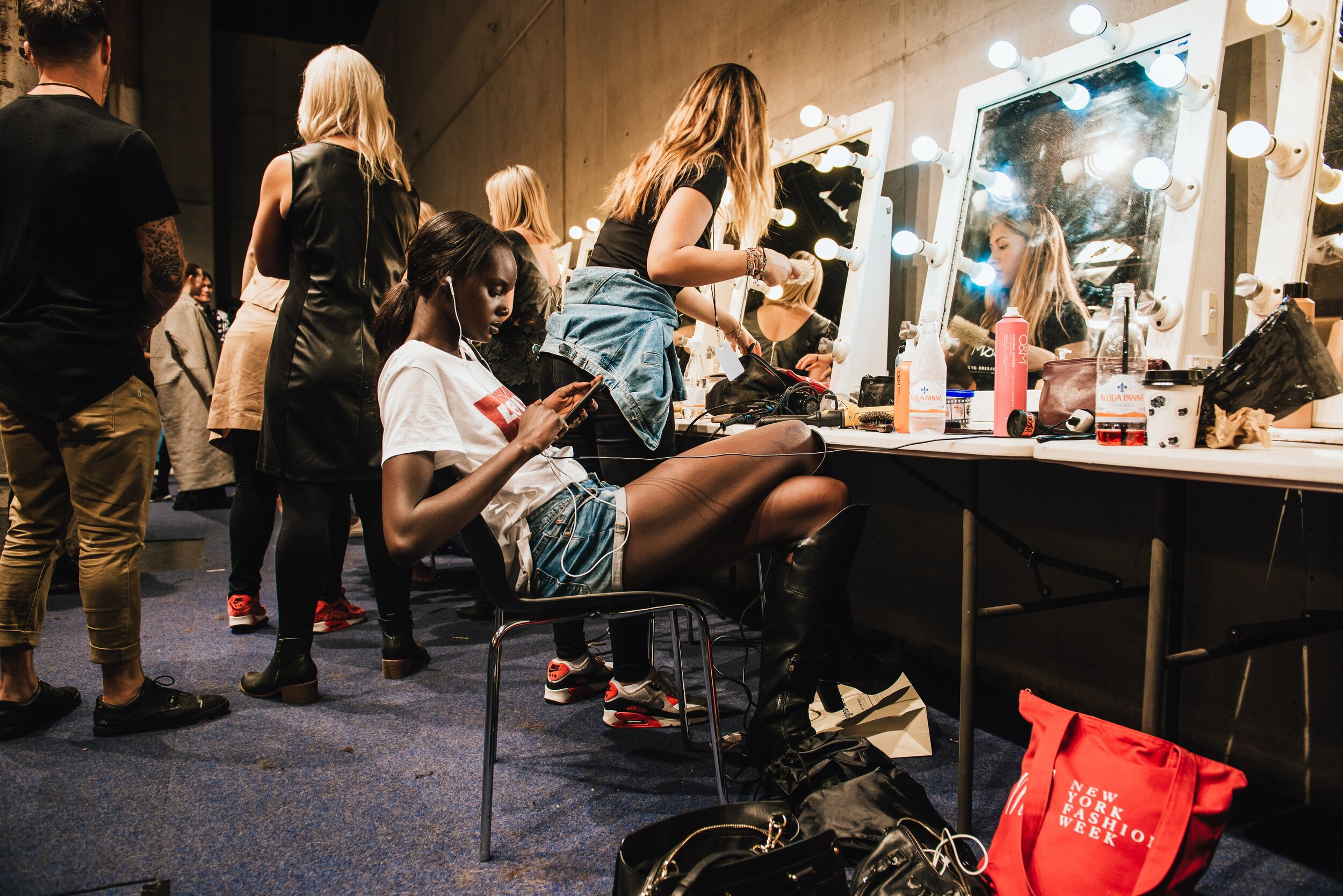Simone Biles and Naomi Osaka Amongst the Black Women Prioritizing Mental Health
Some athletes become accustomed to the height of athletic hallmarking of fame. While others struggle with the daunting pressure of constantly measuring up to their former successes. In their early career, when no mind is paid to their performance, athletes strive in obscurity. They master the game and perfect their craft until their underdog success fosters enough coincidences to qualify as a winning streak. But the moment that streak is jinxed by a one-off performance or outshined by a talented opponent, the crash can damage more than their physical form.
In the domain of sports commentary, there is an endless vocabulary to describe the many pains and sprains that athletes experience on a seemingly daily basis. Professional and amateur commentators alike expertly predict the circumstances of said injuries, the period of recovery, etc. But when it comes to the gruesome scars caused by mental injuries, the jargon is limited.
In recent years, the conversation surrounding mental health has opened up to a wider audience. It is no longer taboo to speak on the trials and tribulations of dealing with depression, nor is it embarrassing to admit the use of ADHD or anxiety medication. Perhaps due to the coronavirus-induced global hibernation meets self-reflection period, the world has come to terms with the fact that mental health issues are health issues. As such, mental health should be treated with the same care and consideration as any other physical impediment.
Thus was the case for Simone Biles when she announced that she would be taking a break from Olympic activities in Tokyo to focus on her recentering herself after suffering from the “twisties”. For such a kitschy term, in high adrenaline, high intensity sports, the “twisties” can actually have dire effects on the mind and body. In an interview following the announcement, Biles explained to the TODAY show's Hoda Kotb that if she had pushed through after her less than stellar, not to mention, fatal performance on the vault “[she] would have got more lost in the air and had a fall and potentially injured [herself] and you can't replace an athlete.”
Reaffirming her status as an irreplaceable champion, she weathered the storm of public criticism, and sat out on Olympic events for the sake of her team and her physical and mental health.
Similarly, back in June when powerhouse tennis player Naomi Osaka took the self-preserving act of sitting out on post-game press conferences at the French Open, she was prioritizing her mental health.
Summarizing this executive decision, Osaka tweeted “We’re often sat there and asked questions that we’ve been asked multiple times before or asked questions that bring doubt into our minds and I am not going to subject myself to people that doubt me.”
Stepping back had less to do with defying the status quo and more to do with rescuing themselves at a time when no one else could see them slowly sinking. At just twenty-six and twenty-three years old respectively, Biles and Osaka are daring to do what young female athletes never thought was possible in the uber-competitive realm of sports.
Minority groups, immigrants, and people of colour all experience the hardships of having to climb up the ladder from a lower level than our non-POC peers. To be a person of colour is to constantly deal with the pressures of needing to not only measure up to but also exceed expectations. This state of mind pushes us to tuck our crippling self-doubt, stress, anxiety and/or depression away, in order to focus on the task ahead. Yet, once we finally get a chance to rest on our accomplishment, the slight poking of our unresolved issues somehow finds their way to the surface and centre of our every thought.
Black women, in particular, deal with the double burden of dealing with the slimy intersection of racism and sexism. Every decision and move is calculated and measured for effect, and despite all of this they still encounter unexpected criticism for simply choosing themselves above all else. The infamous trope of the “Strong Black Woman” also makes it doubly difficult to outwardly display our vulnerability. This term, which is meant to produce their empowerment, rather normalizes their exploitation. By saying that Black women are ‘innately’ strong, resourceful by nature and that they can overcome any obstacle, the social entities charged with their protection exempt themselves from their responsibility towards them. It places Black women on an untouchable pedestal of superhuman status, which public figures like Simone Biles and Naomi Osaka constantly find themselves erected upon.
As audience members and fans of these accomplished athletes, we only catch a glimpse of their successes. We’re not privy to the rigorous training sessions, the endless interviews and the photo ops that lead up to the main event. In case it wasn’t already clear to the legions of the ‘overworked’, in 2019, the World Health Organization, included burn-out an "occupational phenomenon" in the 11th Revision of the International Classification of Diseases (ICD-11), effectively institutionalizing the idea that there’s a limit to our capacities. Symptoms may include “feelings of energy depletion or exhaustion; increased mental distance from one’s job, or feelings of negativism or cynicism related to one's job; and reduced professional efficacy,” which means that it doesn't take a gold medal to experience the same sensations.
It’s during moments like these when we find it hard to distinguish who we are from what we do, that we need to pause and become reacquainted with ourselves. We must come out of the tunnel vision of competitiveness with a newfound and calmer perspective on what truly matters, and see ourselves beyond the realm of our professional success or failures.
Written by Rika Mpogazi










